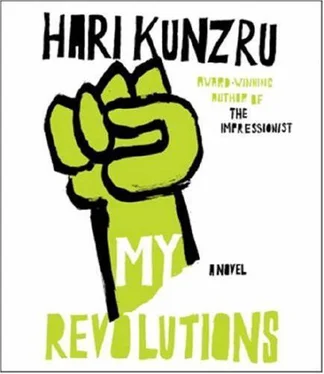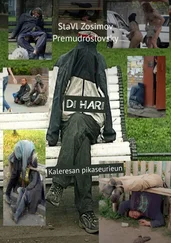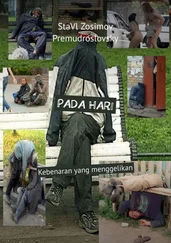“Give?”
“Oh, God, Chris, don’t be obtuse. If you could find something a little more concrete to say about Pat Ellis, you could help yourself considerably.” He looked sharply at me. “Unless you have something else?”
“Such as?”
“It might help for you to tell me what happened. In your own words. Who did what. A lot of that period is still rather murky.”
I said nothing, though Anna’s name was hanging in the air.
Miles put me on a train at Victoria. I slumped in a window seat and was pulled out of London, moldering suburban stations scrolling past as I ate a clammy sandwich and thought about powerlessness. Not about abolishing power, let alone seizing it. Having it trample over you, take the substance of your life and grind it between its teeth. Miles demanded a burnt offering: Pat Ellis or Anna or me. Because he was powerful he would have one. Heart and entrails, sizzling on the fire. I scrunched up the sandwich packaging, stuffed it into the bin behind my seat. Seeing Pat Ellis had taken me back into our own private gray area. Of course there was one: in every situation involving two or more people, there’s always a gray area, a few halftone specks at the border of the black and the white. 1969 wasn’t the last time I’d seen her. It was late in the summer of 1971.
I don’t know what kind of figure I must have presented. When she answered the door of her basement flat, in one of the hilly streets around Tufnell Park, she looked shocked. I’d turned up
unannounced. Someone had been watching the place for a few days and we knew Gavin would be at his chambers. We’d judged her the more sympathetic of the two, the one more likely to help.
She invited me in, not without a trace of reluctance, and we drank mint tea, sitting on her sofa in front of a rug littered with wooden blocks and rattles and stuffed toys. She introduced me to her son, Robin, who was almost a year old. I played with him for a while, making faces and letting him grip my fingers. Pat asked what I’d been up to and I asked her if she still considered herself a revolutionary. I can’t remember what formulation she used in her reply, but she was noncommittal. I got the impression I was making her nervous, because she kept finding excuses to get up and walk around, fetching things from the kitchen, fussing with Robin. She asked again what I’d been doing and I told her (as planned) that I was living in Leeds and was in contact with certain comrades who were facing criminal charges arising out of their clandestine work. The baby began to cry and she picked him up, walking up and down, rubbing his back. She asked what kind of charges.
“Armed robbery,” I told her.
Expropriation was logistically correct, since we needed a better way of financing ourselves than car theft. It was politically correct because it was an act of dispossession. It was tactically correct because it was proletarian, the method of people who owned nothing, who had no stake in the system. But our first attempt had gone badly wrong. For once, I hadn’t been directly involved. It was Sean’s project. Anna was out of the country meeting some of her Paris contacts and he’d put it together with Leo, whose idea of planning was as vague as his own. Accompanied by Ferdy and Quinn, two of Leo’s old friends from the Firm, they’d gone into a bank in Reading and held it up. Sean had fired a shot into the ceiling, cowboy-style. According to Leo, he’d even insisted on wearing a Stetson over his stocking mask. They’d gotten away with a fair amount of money, but somehow Ferdy was left behind, tackled by a passerby as they ran to the car. Though Sean had threatened to
shoot him, the man wouldn’t let go and Sean hadn’t been prepared to pull the trigger.
I told a version of this story to Pat. Though there was no chance of acquittal, Ferdy wanted to plead not guilty. We needed lawyers who could run a political trial, who could use the court to propagate our message; in that way we thought we could salvage something from a disastrous situation. Pat heard me out, jiggling up and down on the rug as she tried to soothe her baby. She told me she didn’t want any part of it. She didn’t believe there was anything to be gained from that kind of politics. She used the same words I’d heard from so many of our supposed allies. Adventurist, counterproductive . I argued with her for a while and eventually she agreed to write down some names, people she knew who might take the case. I gave her a phone number, told her she should ring if she changed her mind. I knew she wouldn’t. Why did she help at all? Out of friendship? To get rid of me? I suppose one could find some ambiguity in it, space enough for Miles to live and thrive. I next saw her when she popped up on TV some time in the early nineties and I discovered that she’d become an MP. The idea of a political trial soon faded away and Ferdy, who refused to name his accomplices, was sentenced to eight years in prison, without the question of his political motivation even being raised.
When I got off the train at Chichester I went straight to God’s and drank myself into a stupor, sitting in front of the gas fire with a bottle of supermarket Scotch. He must have come downstairs and found me, because when I woke up the next morning, feeling shaky and bleak, I found a blanket thrown over me and a glass of water and a foil strip of painkillers waiting on the desk. God wasn’t given to making conversation, least of all in the morning. As I tried to gather myself to leave, he shuffled around the shop and pretended to look for something in the theology section, working up courage to speak.
“I don’t like to pry, Mike,” he said gruffly, after several minutes of inner struggle, “but is everything all right at home?”
“Don’t worry, God. I’ll be — ne.”
He looked immensely relieved that I wasn’t going to force any intimacies on him. I was touched. I knew what it had cost him even to broach the subject. A great respecter of the private pain of others, Godfrey.
* * *
I must have fallen asleep, because when I open my eyes the sun is low and my skin feels hot and tight around my face. I sit up, watched suspiciously by a family of picnickers who’ve set themselves up elaborately on the riverbank, a small brightly colored complex of windbreaks and umbrellas and barbecue equipment. My head is swimming. I’m very dehydrated. I dress and pick my way back across the rocks and up the path to the car, where I change my shirt and gulp down half a bottle of warm water. Then I sit on a bench, listening to the buzzing of the flies round the overflowing litter-bins. The air is fragrant, heavy as lead.
I drive through the evening, passing Bordeaux just as the light fails. The radio chatters and spits out pop songs and the road climbs through foothills into the darkness. Little by little, my skin exhales heat and the bends sharpen into hairpins, dented metal barriers gleaming suddenly in the headlights. I’m close now. Only another hour to Sainte-Anne. I don’t feel ready. I want to swing the car round, to defer the moment when I’ll find myself face to face with Anna.
After the Post Office Tower, the conflict escalated. We began to hear rumors of other actions, ones we hadn’t carried out. Someone blew up a railway line in Ayrshire, near the Cairnryan ferry to Northern Ireland. They phoned in a warning to British Rail, told them not to allow their trains to be used as troop transports. There were attacks on electrical installations, airline offices, and embassies. Some of our friends were arrested, notably Alex Hill from the Sylvan Close occupation, who apparently had a copy of one of our communiqués in his flat. Many more had their homes raided and their possessions smashed or taken away for examination. I remember Sean remarking sarcastically that if having your record
Читать дальше












